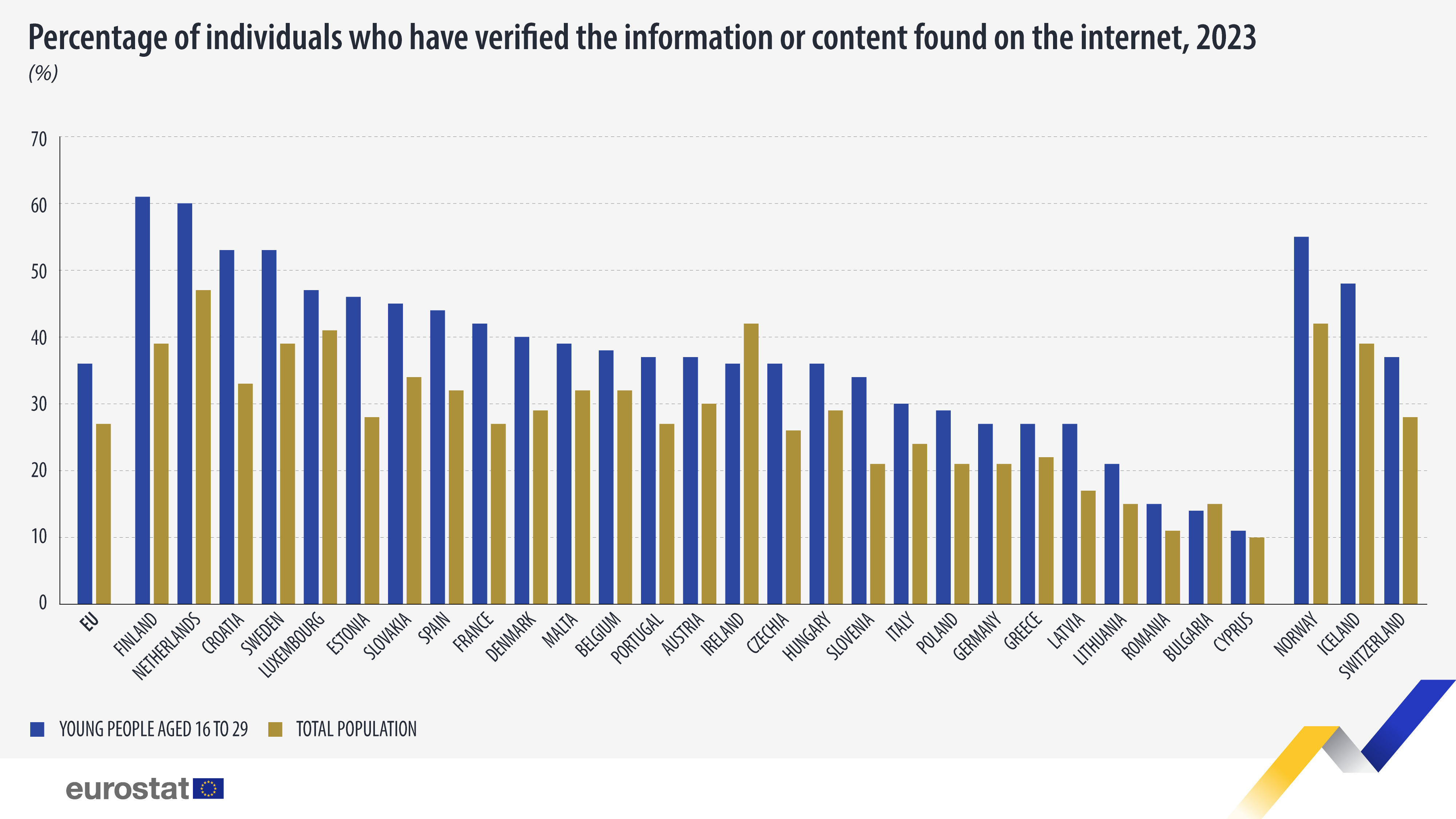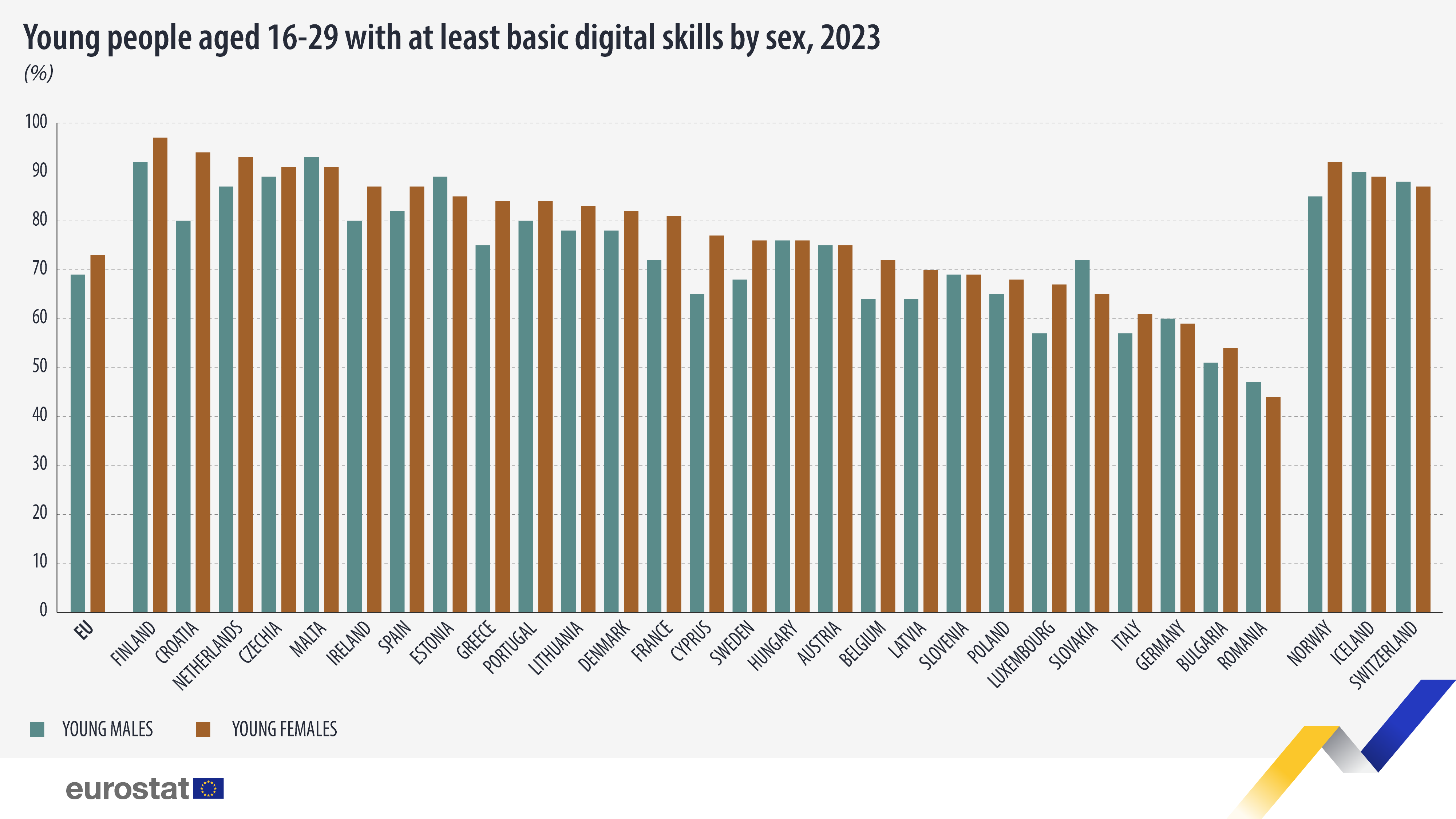36% of young people in the EU verified online content

In 2023, 36% of young people aged 16-29 in the EU, who had used the internet 3 months prior to the survey, tried to verify the truthfulness of the information or content found on the internet from other sources.
This information comes from the survey on ICT usage in households and by individuals published by Eurostat.
In 4 EU countries, the share of young people who verified online content was above 50%: Finland (61%), the Netherlands (60%), Croatia and Sweden (both 53%).
The lowest shares of young people who verified online content were recorded in Cyprus (11%), Bulgaria (14%), Romania (15%), Lithuania (21%) and Latvia (27%). These 5 countries were among the 14 that registered a decrease in this share between the 2021 and 2023 surveys.
The 2023 survey showed a 9 percentage point (pp) gap between the shares of young people (36%) and the adult population (27%) who verified online content. In Finland, this gap reached 21 pp (61% compared to 39%).
Only 2 EU countries reported a higher share of the adult population verifying online content than young people: 42% of the total population versus 36% of young people in Ireland and 15% versus 14% in Bulgaria.
Source dataset: isoc_sk_edic_i21
19 EU countries register higher shares of young females with at least basic digital skills than males
In 2023, at EU level, the share of young females aged 16-29 (73%) with at least basic digital skills was higher than that of young males aged 16-29 (69%).
At country level, a similar pattern was observed in 19 EU countries. The largest gaps in favour of young females were registered in Croatia with a difference of 14 pp (94% female to 80% male), Cyprus with 12 pp (77% to 65%) and Luxembourg with 10 pp (67% to 57%).
The opposite, where the share of young males with at least basic digital skills is higher than that of young females, was registered in Slovakia with a difference of 7 pp (65% to 72%), Estonia with 4 pp (85% to 89%) and Romania with 3 pp (44% to 47%).
Source dataset: isoc_sk_dskl_i21
For more information
- Statistics Explained article on Young people – digital world
- Thematic section on digital economy and society
- Database on digital economy and society
- Thematic section on youth
- Database on youth
- Digitalisation in Europe - 2024 edition
Methodological notes
Digital skills refer to 5 areas: information and data literacy skills, communication and collaboration skills, digital content creation skills, safety skills and problem-solving skills. To have basic digital skills, people must know how to do at least 1 activity related to each area.
If you have any queries, please visit our contact us page.


